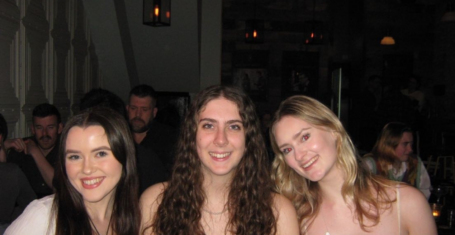
Gagged and Bound
Paul Staunton on the importance of freedom of speech at university.
Freedom of speech is regarded as one of the most valuable commodities of a civilised country. Wars are fought every day for freedom and yet some groups would see this basic human right taken from us. An extreme example of this would be when the US consulate in Libya was bombed by Islamic fundamentalists in response to a US-produced amateur film depicting the Prophet Muhammed. A much less severe case of controlling freedom of information occurred last year at the University where I study.
In November 2011, author and jazz-musician Gilead Atzemon was invited to Exeter University by the group “Friends of Palestine” to discuss his book on Jewish identity politics and its significance to the Palestine-Israel conflict. The provocative book has received good reviews from academics and journalists world-wide, as well as attacks from religious and pro-Israel groups. The talk at Exeter was picketed by students led by the University’s Jewish Society, who had failed in their appeal to have the talk cancelled. When faced with the picketers, Gilead first asked whether any of them had read his papers on the subject. When it became apparent they had not read his work, he said: “if you really take yourselves seriously, the minimum you should do, next time, is go and read [the papers]. Not get quotes from an Israeli propaganda unit.” Gilead then went
on to invite all the protesters into his seminar and encouraged them to challenge him on anything they felt was antisemitic.
This, however, is one of many examples of controversial speakers being harassed for speaking in college or university campuses, from BNP leader Nick Griffin addressing the Oxford Unions to the Iranian president Mahmoud Ahmadinejad being invited to Columbia University in the US. We must realise that even if the views presented by a speaker are wildly unfounded or offensive, censorship is not the answer. Universities are the perfect forum for hearing all points of view, and then academically refuting those that are ill-formed or unfair.
After a report was published in 2011 about freedom from censorship in universities Nabil Ahmed, president of the Federation of Student Islamic Societies, welcomed the “resolute” defence of academic freedom, saying: “It is our hope that British university campuses will remain fertile grounds for vigorous discussion and critical thinking in spite of attempts by a minority who seek to fear-monger and censor legitimate debate.” The report has been drawn up by a working group of eight vice-chancellors who professed that “unless views can be expressed they cannot also be challenged”, adding that “by being places where ideas and beliefs can be tested without fear of control.” Universities act as a safeguard against ideologies that threaten Britain’s open society.
I, for one, wish to hear all opinions, the good and the bad, without prejudice or malicious
preconception. After all, is it not extremely valuable to study the beliefs and views of the Ku Klux Klan, so that we may educate future generations as to how misguided, and unfounded they were?









































